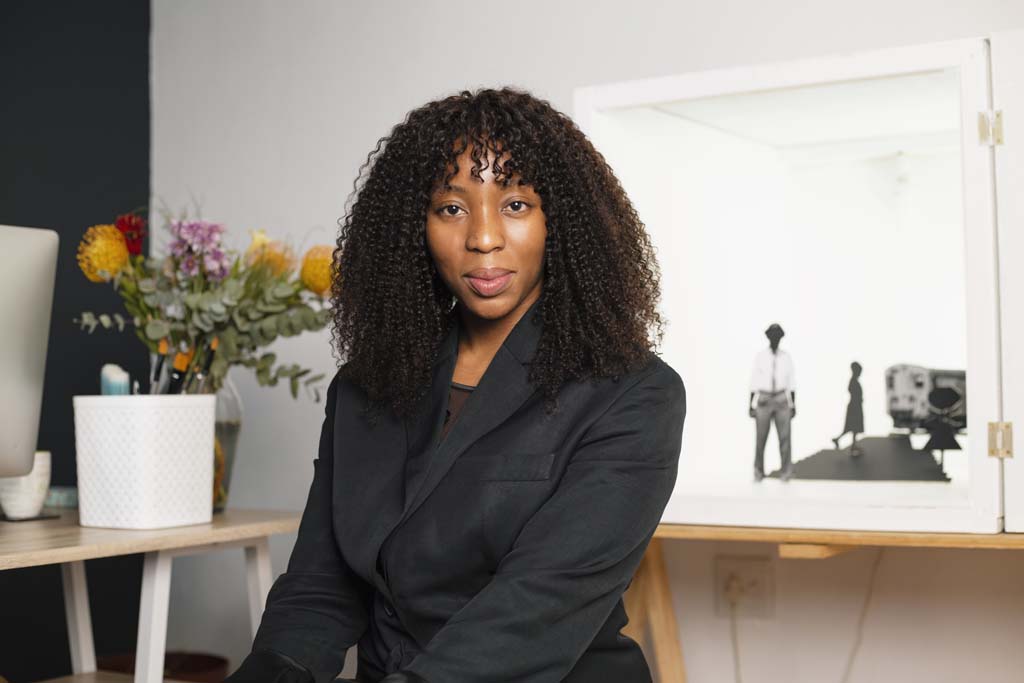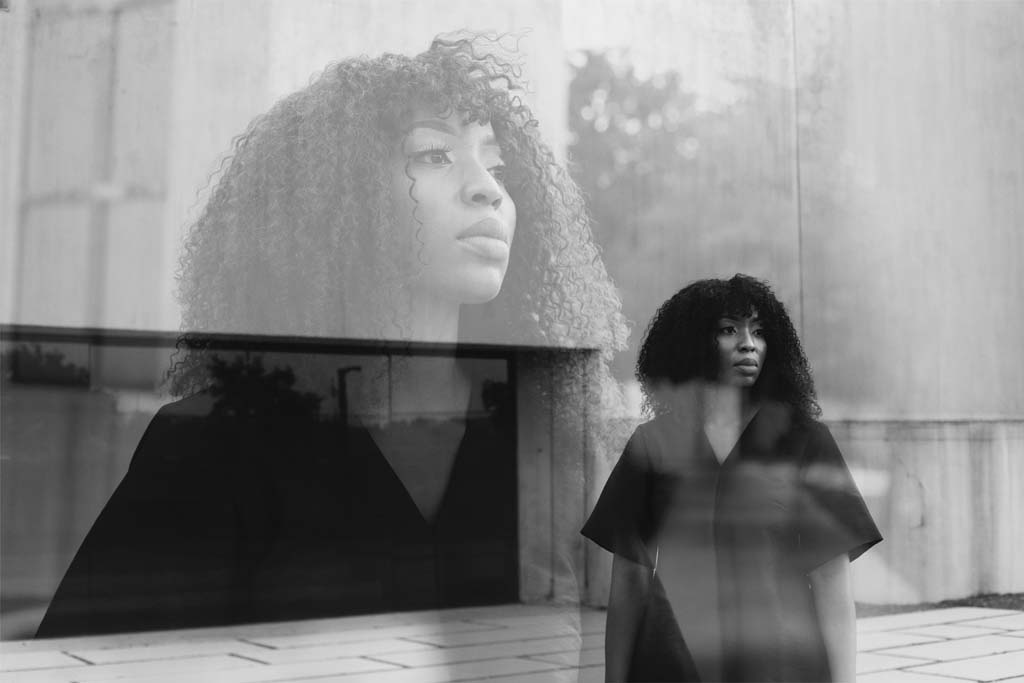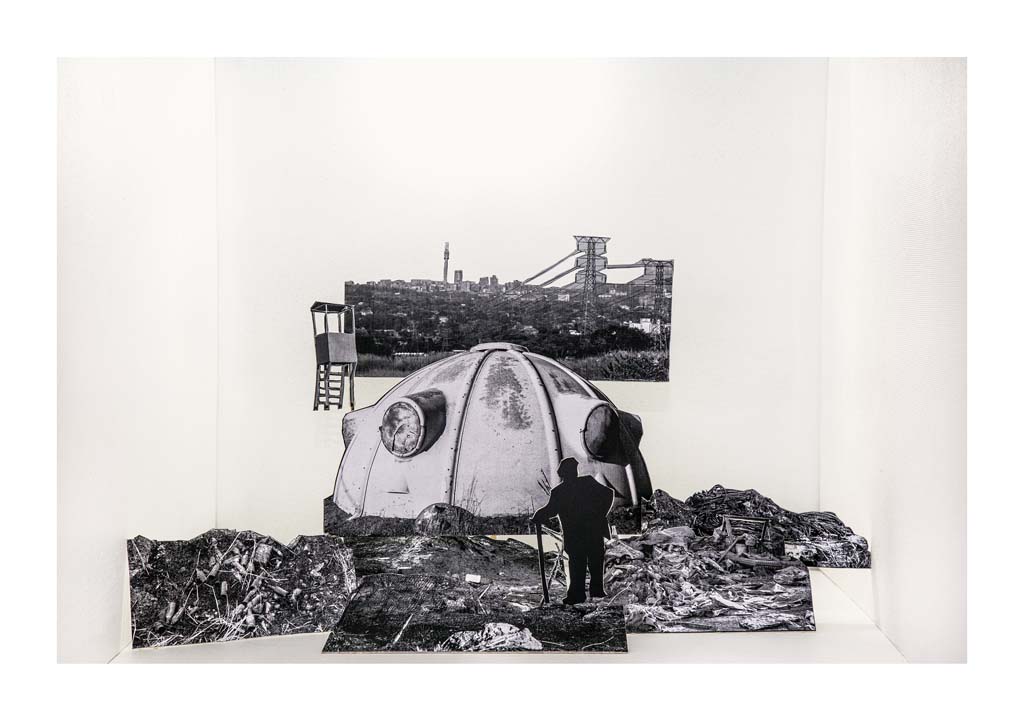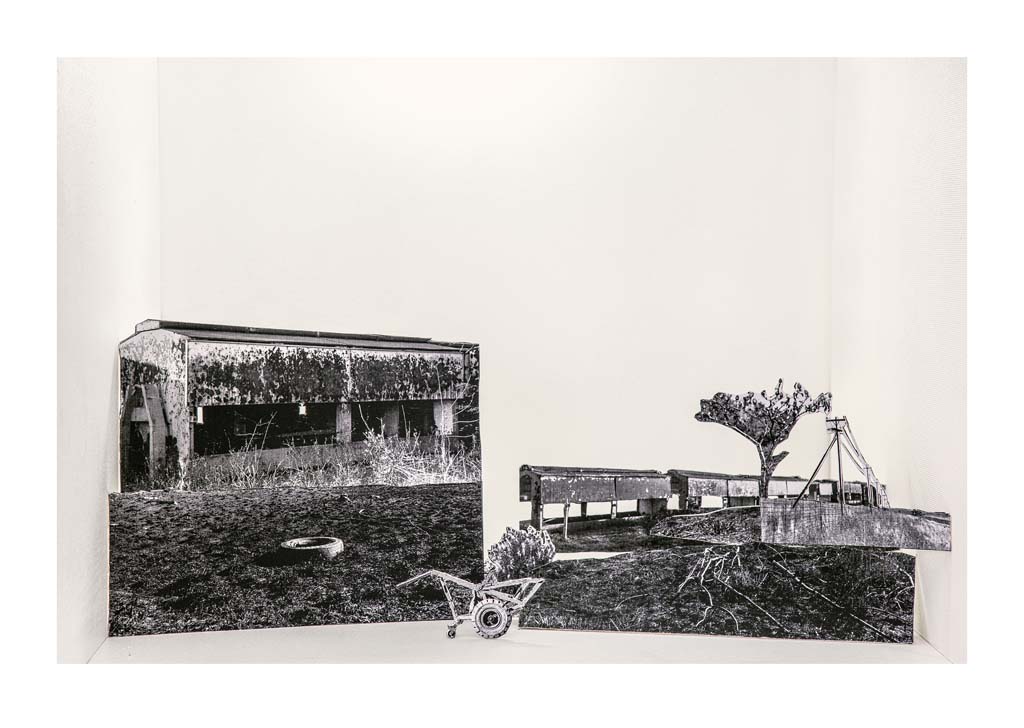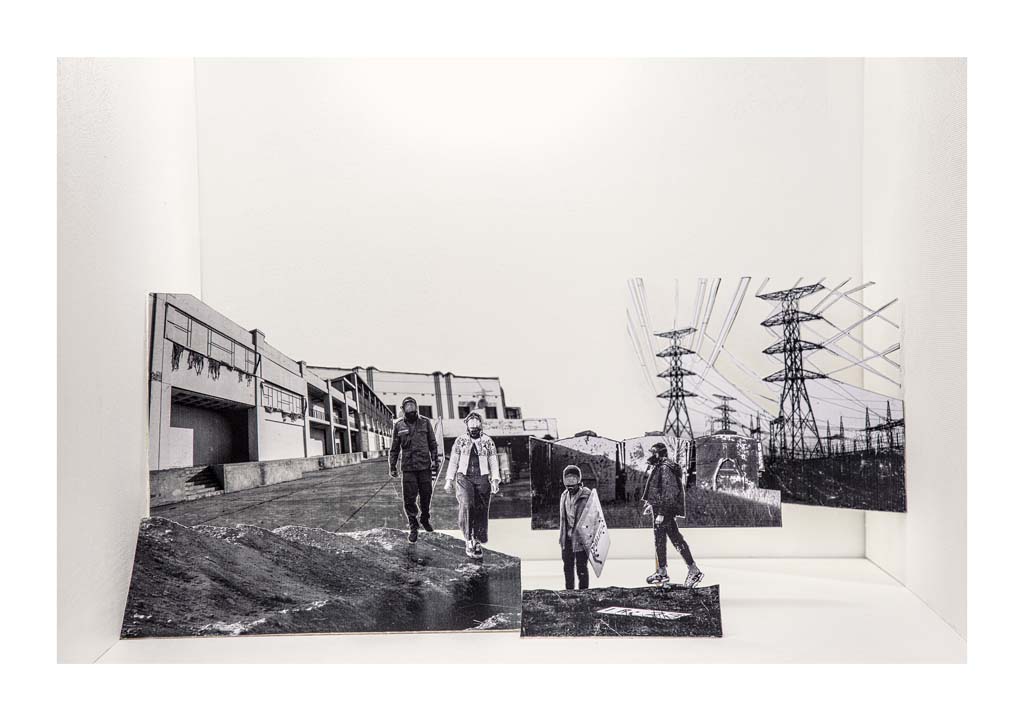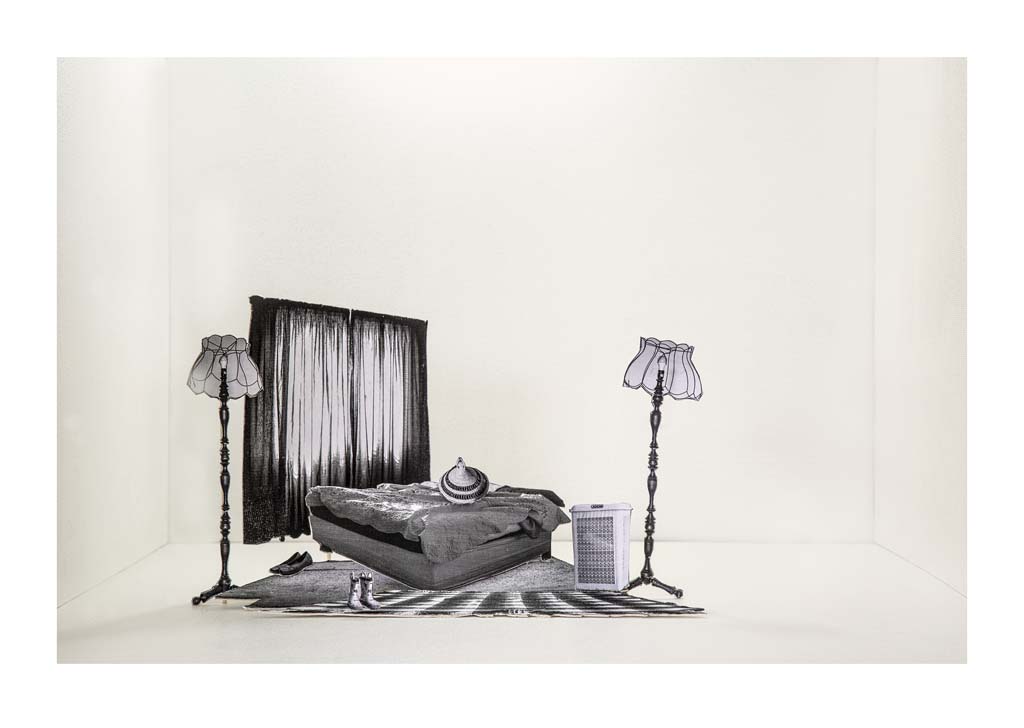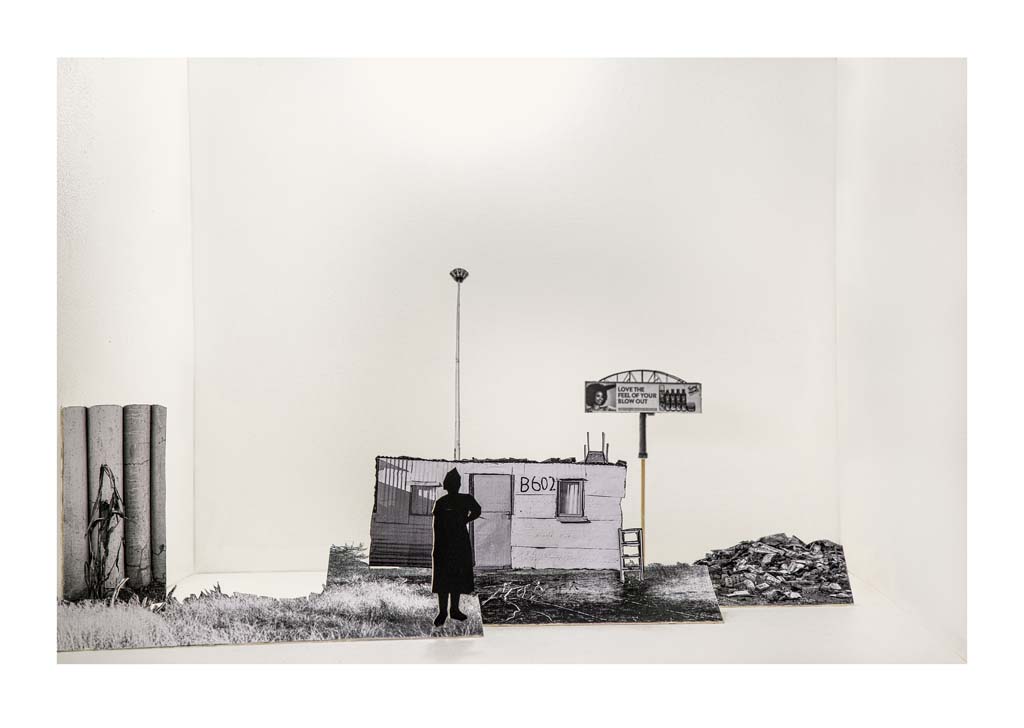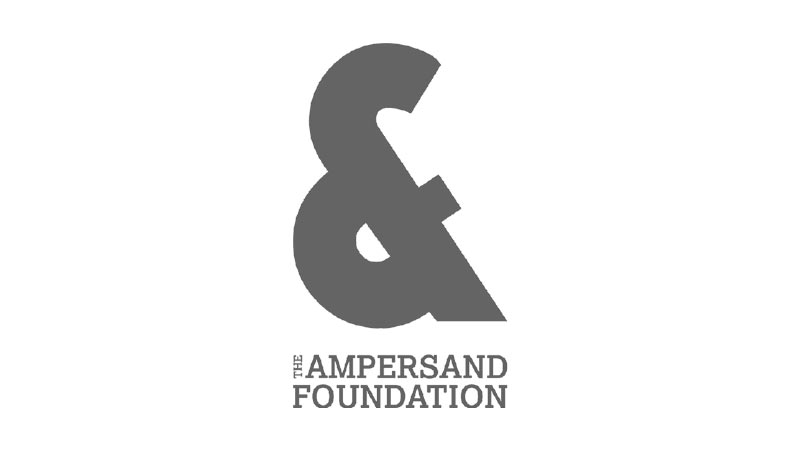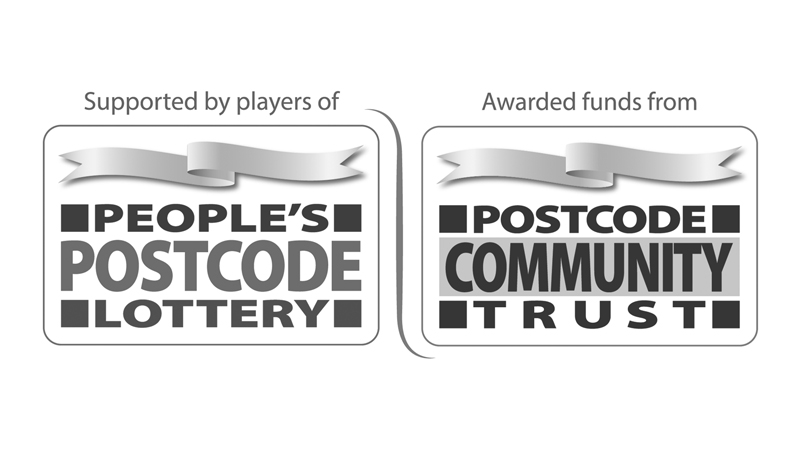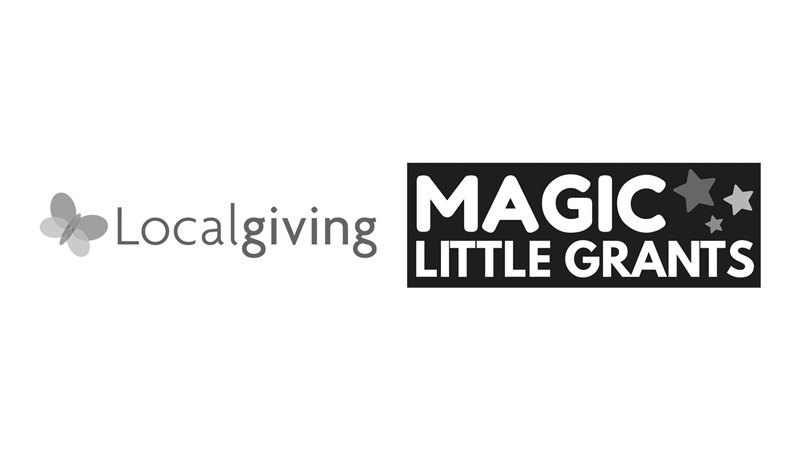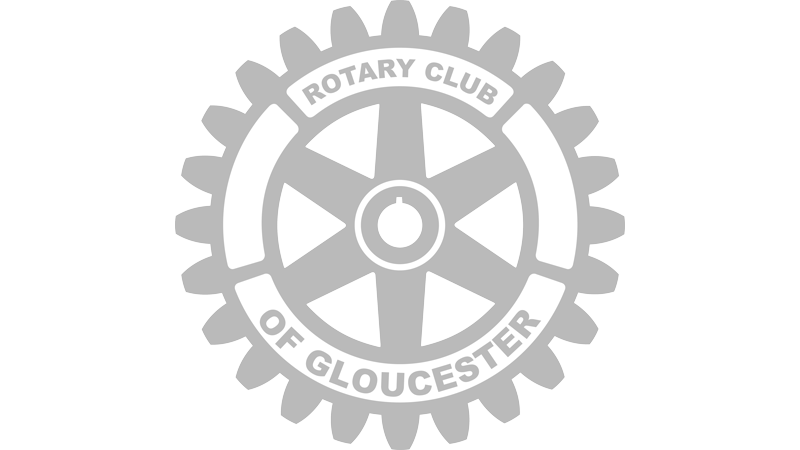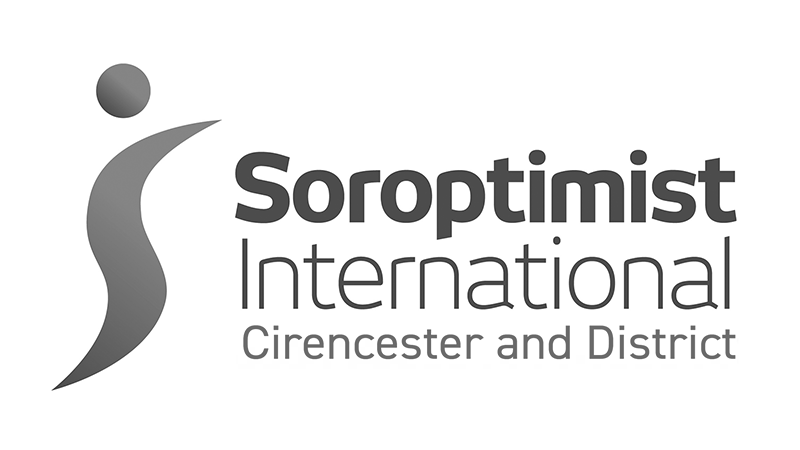Lebohang Kganye was born in 1990 in Johannesburg, where she currently lives and works. Kganye received her introduction to photography at the Market Photo Workshop, in Johannesburg, in 2009 and completed the Advanced Photography Programme in 2011. She obtained a Diploma in Fine Arts from the University of Johannesburg in 2014 and is currently doing her Masters in Fine Arts at the Witwatersrand University. Notable awards include the Grand Prix Images Vevey 2021/22, Paulo Cunha e Silva Art Prize, 2020, Camera Austria Award, 2019 and the finalist of the Rolex Mentor & Protégé Arts Initiative, 2019.
Read More
Kganye is participating in major museum group exhibitions in 2021, Family Affairs. Family in Current Photography at the House of Photography in Deichtorhallen Hamburg, Germany and The Power of My Hands, at Musée d’Art Moderne de Paris, France. She has exhibited her work extensively within curated group exhibitions and biennales including: Afterglow, Yokohama Triennale, Yokohama Museum of Art, Japan, in 2020; Africa State of Mind, a travelling exhibition presented at the Royal West of England Academy, Bristol, UK, in 2019 – 2020, the Museum of African Diaspora, San Francisco, USA, in 2019 and the Impressions Gallery, Bradford, UK, in 2018; The Way She Looks: A History of Female Gazes in African Portraiture at the Ryerson Image Centre, Toronto, Canada, in 2019; Recent Histories, a touring exhibition of Contemporary African Photography and Video Art from Arthur Walther Collection, presented at Huis Marseille, Museum for Photography, Amsterdam, in 2018–2019; Tell freedom, by all means necessary, at Kunsthal KAdE, Amersfoort, Netherlands, in 2018; Give me Yesterday, Fondazione Prada, Milan, Italy, in 2016 and Telling Time, at the Bamako Encounters Biennale of African Photography, Bamako, Mali, in 2015.
In 2021, a solo exhibition of Kganye’s newly commissioned works will be presented by the Georgian House Museum in Bristol, UK. Earlier solo exhibitions include The Stories We Tell : Memory as Material, at George Bizos Gallery at the Apartheid Museum, Johannesburg, South Africa in 2020; Ke Lefa Laka : Her-story, at a ppr oc he in Le Molière, Paris, France in 2019; Mohlokomedi wa Tora at the Pretoria Art Museum, Pretoria, South Africa in 2018, Ke Lefa Laka : Her-story, at Festival Africolor at Université Paris 13, in Bobigny and Villetaneuse, Paris, France both in 2016 and Ke Lefa Laka at Market Photo Workshop, Johannesburg, South Africa in 2013.
Tell Tale, 2018
Film, Photo, Installation
With the scotching sun piercing the skin, I spent weeks walking along the gravel roads of the small town Nieu Bethesda in the Karoo, Eastern Cape which the residents call a village, a term foreign in my vocabulary. Shawn Graaff – an American young woman who lives between Cape Town and Nieu Bethesda and works on the restoration and conservation of the Owl House and the cement sculptures created by Helen Martins and Koos Malgas. She introduced us to many of the villagers, including a beekeeper who makes cosmetic products in her backyard from beeswax, a violin string maker using horse tails to make the strings, we drove to a livestock auction where the farmers bid for sheep and met a ‘tannie’ in her tea garden who translates Athol Fugard’s plays from English to Afrikaans.
Through the construction of miniature theatre sets with silhouette cut-outs of the characters in the diorama, I stage the stories the villagers narrated to me in relation to Athol Fugard’s play Road to Mecca and a chapter from Lauren Beukes’ book Maverick about Helen Martins. Tell Tale confronts the conflicting stories, which are told in multiple ways, even by the same person – a combination of memory and fantasy. The work does not attest to being a documentation of a people but presents their personal narratives, which they share over a cup of tea, homemade ginger ale or the locally brewed beer. These prized possessions hearken back to a particular time but are also vehicles to a fantasy that allows for a momentary space to ‘perform’ ideals of community. Fictive narratives depend on oral histories, genealogist, Kimberley Powell states, “Oral histories are stories told by living people about the past. Generally, these are stories of their own life and the life’s of the people around them. Often an oral history includes details and stories that exist nowhere other than in the individual’s mind.”
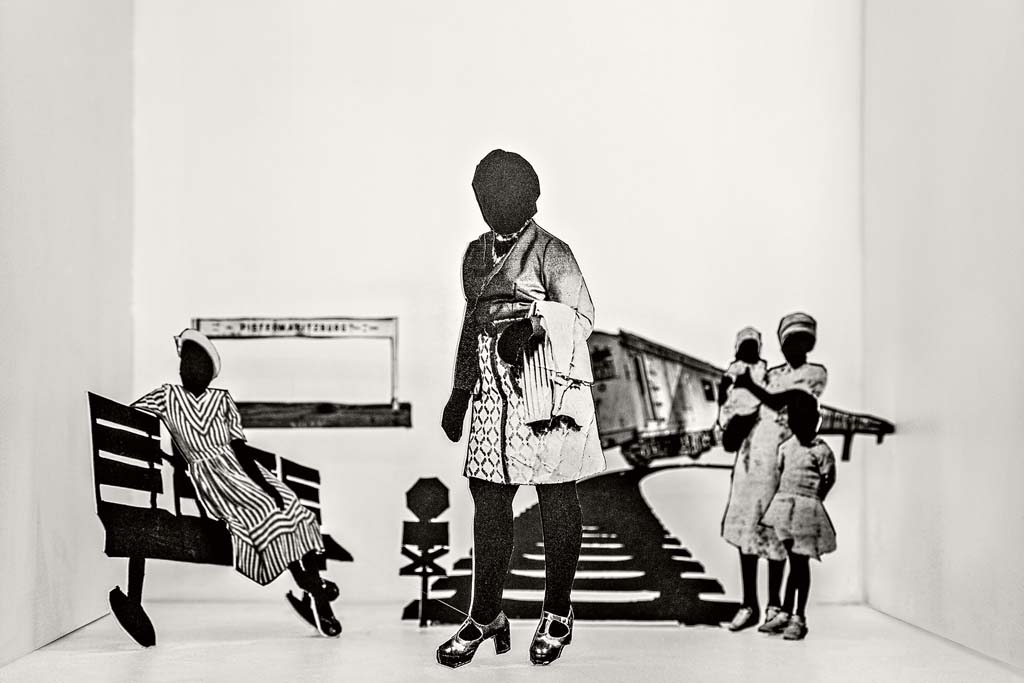
You couldn’t stop the train in time, 2018 (Scene 1)
References playwright The Train Driver by Athol Fugard, set in Port Elizabeth.
About a woman who threw herself and her three children in front of a moving train in Port Elizabeth.
“For Pumla Lolwana and her three children Lindani, Andile and Sesanda—who died on the railway tracks between Philippi and Nyanja on The Cape Flats on Friday, December 8th, 2000.”

The nameless ones in the graves, 2018 (Scene 2)
References playwright The Train Driver by Athol Fugard, set in Port Elizabeth.
Simon (Andile) Hanabe an African man who is a gravedigger, with Roelf (Rudolf) Visage, who is a white train driver who was driving the train that hit the woman and her children is looking for her grave, set in Nieu Bethesda, in the Karoo, Eastern Cape.
The scene references a paragraph in the book, “Plenty if ghosts out there I hear them at night when the dogs are digging I hear them. They don’t like the dogs. So I go out and throw stones. It is like the wind, is very sad. The dogs wake them up and they are not happy. I sing to them. I sing like my mother sing to me when I was a little boy and she carry me on her back. Thula Mama Thula. Then they go back to sleep. And all is quiet again.”
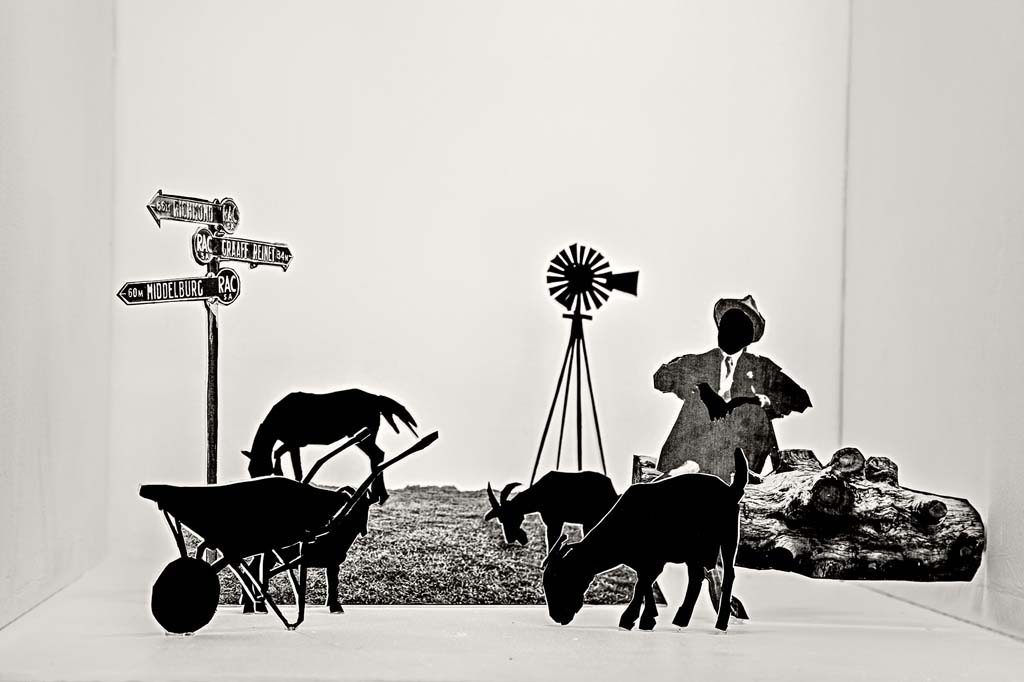
Helen’s father grazing his goats, 2018 (Scene 3)
References a chapter in Maverick by Lauren Beukes of a character Helen Martins, which Athol Fugard writes about in his play Road to Mecca, set in Nieu Bethesda, in the Karoo, Eastern Cape.
Helen’s father “Piet was caught in the act of grazing his goats on another farmer’s lucerne while they were at church. He refused to go to before the magistrate and had to be carted to court in a wheelbarrow.”
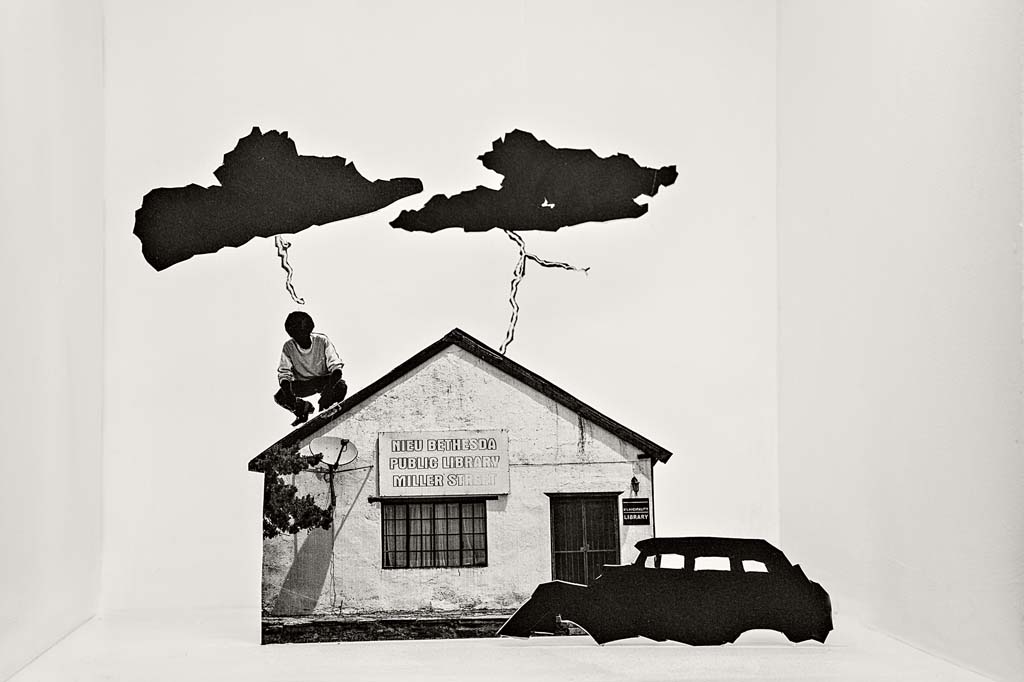
Johannes Hattingh struck by the bolts from above, 2018 (Scene 4)
References a chapter in Maverick by Lauren Beukes of a character Helen Martins, which Athol Fugard writes about in his play Road to Mecca, set in Nieu Bethesda, in the Karoo, Eastern Cape.
“Helen had found a measure of happiness, albeit tainted by secrecy. In 1939, Johannes Hattingh and his family moved to the village. He and Helen became close friends and then, in spite of his wife, much more. They were both peculiar in their own ways… For his part Johannes had been struck by lightning—twice—and it had turned him a little strange. He was a tall man and obviously an easy target for the bolts from above that hit him seven years apart: first when he was working on the roof, the second while walking in the veld. While Johannes miraculously survived both occasions, he didn’t come away unscathed.”
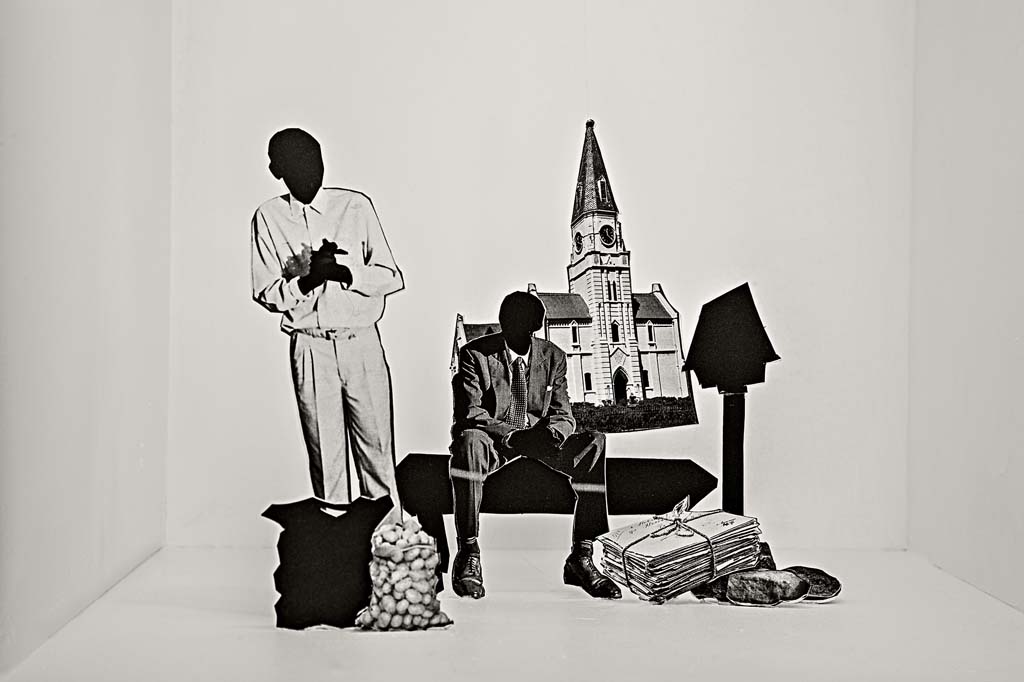
Farmer selling Sneeuberg potatoes, 2018 (Scene 5)
References Road to Mecca by playwright Athol Fugard, set in Nieu Bethesda, in the Karoo, Eastern Cape.
“We had a farmer from the Gamtoos Valley up here last week trying to sell potatoes to us. He had his lorry parked in front of the Post Office. I didn’t have the heart to tell him he’d wasted his time driving all this distance and that nobody comes to Sneeuberg to sell potatoes”

Never light a candle carelessly, 2018 (Scene 6)
References Road to Mecca by playwright Athol Fugard, set in Nieu Bethesda, in the Karoo, Eastern Cape.
“In Miss Helen’s last years of her life, there had been one very significant friendship with a young woman and social worker, from Cape Town”
H: “You lit a candle for me before you left… Such a sad little light, with its little tears of wax running down the side. That little candle did all the crying in here that night.”
M: “There is more light in you than in all the candles put together.”

